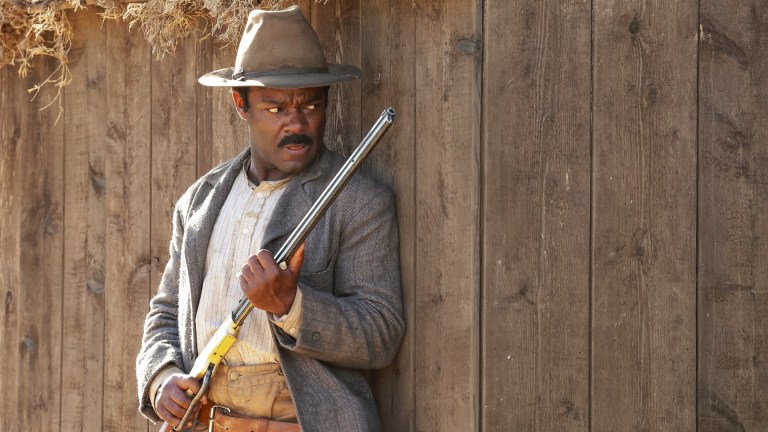Lawmen: Bass Reeves – The Truth Behind the Real Life Legend
Taylor Sheridan’s latest series is based on the life of a legendary lawman. But what is fact and what is fiction about Bass Reeves?

This article contains no spoilers for Lawmen: Bass Reeves but does discuss details of the real Bass Reeve’s story.
While audiences have fallen in love with Yellowstone (and perhaps a little out of love since the delay in production due to the myriad of Hollywood strikes and behind-the-scenes drama of the show), its storytelling universe has grown exponentially. With all the proposed spinoffs and pre-existing prequels, fans are now looking at nearly half a dozen shows within this amazing world that reminds Americans about their bearish beginnings and how the West was really formed. Yet none of the cowboy inspired chaos and horse-driven drama is grounded in reality as much as the newly-released Lawmen: Bass Reeves, which is produced by Yellowstone‘s Taylor Sheridan and created by Chad Feehan.
While Bass Reeves is no longer categorized as a spinoff to the fictional 1883 that Sheridan created, it’s interesting to note that internationally (specifically in Canada), the show is still being advertised as “1883: The Bass Reeves Story”, which was even one of the original drafts for the title of the show. Bass Reeves (played by David Oyelowo in the series) is a part of Americana that very few people know about, and that’s always been a major part of Sheridan’s charm. His shows shine a light on the dark corners of the American dream, and dramatizes real life history, and if much of the recorded history of Reeves is correct, then Sheridan and Feehan barely had to stretch to fabricate drama.
Reeves was born a slave in 1838 in Crawford County Arkansas as the “property” of farmer and politician William Reeves. Bass, named after his grandfather, would eventually work beside his parents in the field. Bass became a favorite of the slave owner Reeves, as he was always well-mannered and had a great sense of humor. The Reeves plantation eventually moved to Texas, and when the Civil War broke out, George Reeves (William’s oldest son) went into battle with Bass by his side.
Bass, while being forced to fight on the wrong side of history, used his time by George’s side to become a decent marksman. Eventually, Bass “parted ways” with George. Some claim it was because Bass savagely beat up George after George cheated during a card game. Other historical reports claim that it was because Bass finally had enough of the treatment of slaves, heard how some slaves were being freed in the North, and had enough strength to flee.
Regardless, Bass spent the next few years on the run and predominantly moved around Indian country in Oklahoma. He took refuge in Seminole, Cherokee, and Creek Indian territory, and while there, learned tracking skills, the language of the surrounding First Nations, and became an even better marksman. There’s even a story that when he occasionally wanted to win some cash or prizes, he quickly became known as too good a gunman, and was regularly barred from turkey shoots.
Finally free in 1863, and no longer a fugitive, Reeves left Indian territory and settled down as a rancher in Arkansas. He eventually married, and had 10 children, five girls and five boys. During his time as a farmer and rancher, Reeves also acted as a guide to law enforcement in the area using the knowledge and skills he learned during his time on the run. Eventually, Akansas, especially Indian territory, had become a refuge for lawlessness and villainy. To help clean up that area, Judge Isaac Parker, known as a “hanging judge” was appointed to crack down on the murderers and thieves in that area.
One of his first acts was to appoint 200 new Deputy U.S. Marshals. The new Chief Marshal, James F. Fagan and Parker had known of Reeve’s work in that part of the county, and so, Reeves became one of the first Black Deputy Marshals in the United States.
Over the years, the legend grew. Being both an expert tracker and expert on the quick draw, Reeves became well known for always bringing in his man, often alive, but he had no problem with the other option, killing 14 outlaws during his time as a Marshal. He made excellent profit collecting several bounties at the same time before returning home to his ranch for a respite. Many believed Reeves might have been the inspiration for the Lone Ranger, among other pop culture characters in the last century. Reeves was notoriously clean cut. His boots were always polished, he famously sported a large hat at all times, and rode a snow white steed. Coupled with his impressive knowledge of First Nations’ culture, it’s not difficult to see how he could inspire the story of the infamous Lone Ranger and Tonto.
An enigmatic version of Bass appears in the very first episode of the critical darling, Watchmen. There, HBO and showrunner Damon Lindelof gave us a 1920s era silent film detailing the exploits of “The Black Marshal of Oklahoma”, once again heightening the superhero and tall tale nature of this amazing historical figure. The show also used Reeves to back up its narrative of Black heroism in America – a subtextual strength of the mini series.
More recently, another famous Black bounty hunter appeared to be inspired by Reeve’s amazing set of skills. While Tarantino’s Django Unchained is clearly inspired by other cinematic Grindhouse offerings such as the Spaghetti Western of the same name, and 1975’s Mandigo – the similarities to Reeve’s real story is obvious. The manner in which Django fought for his freedom, became an outlaw only to eventually become one of the most proficient lawmen in the entire west is one of the greatest American stories, and certainly one of the greatest Black American stories in the country’s young history.
A story which can now be brought to the televisions of millions of Americans and given the proper gravity it deserves.
The first two episodes of Lawmen: Bass Reeves are available to stream on Paramount+ now. New episodes premiere Fridays.
